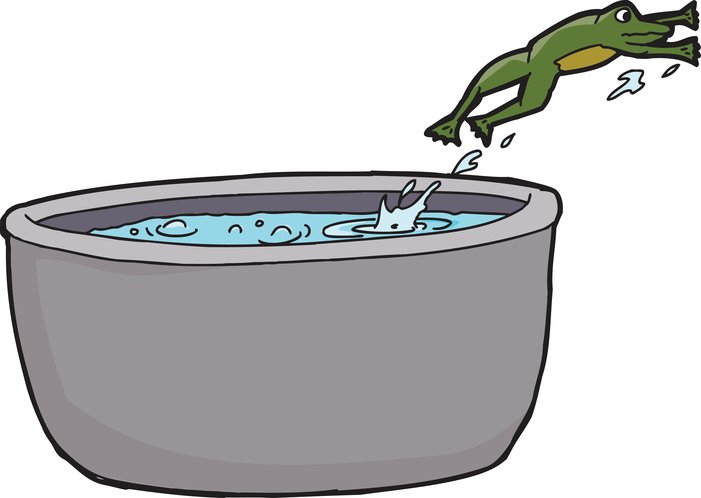
 law-and-legal
law-and-legal 
Hop to it.
Frogs are one of nature’s miracles. The South African sharp-nosed frog can jump 44 times its own length, equivalent to a 6-foot-tall human jumping about 264 feet. The long jump world record is a hair under 30 feet, so — if we put aside the square cube law for purposes of metaphorical analogy here — an average South African sharp-nosed frog is nearly nine times better at jumping than the best human in recorded history.
Frogs not only jump far, but they’re also accurate. Their highly specialized leg muscles allow them to jump at a great range of distances and angles, allowing them to hit their target exactly. To frogs, this is essential for their survival to avoid predators and position themselves to best catch their prey through their tongues (which are themselves about a third the length of their bodies).
Research Like A Frog: Jump Far And Accurately
When you’re doing legal research, you can do far worse than to channel the frog as your spirit animal. Quality legal research, like the frog, covers lots of ground quickly, while still hitting its mark accurately.
It’s not enough to just cover a lot of ground, you also need accuracy and thoroughness. But without all three legs of the tripod — extent of research, accurately finding the on-point cases, and digging deep into all relevant cases — the whole structure falls apart.
First, like the frog’s jump distance, good legal research needs to be extensive. You need to cover a lot of distance, lest you cover only part of a subject or miss some key area.
Second, like the frog’s accuracy, you can’t just be extensive, but need to hit your mark. No matter how broad your findings are, if you miss an important case, the whole thing is a waste. Or worse, your missed case undermines your whole research, resulting in an ironic end like a frog who jumps right into the mouth of a predator.
Third, you need to dig deep into your research, like a frog hunting down its prey. Missing some detail is just as bad and embarrassing as not covering your subject or missing some key cases. Citing a case that has bad language for you is about the worst thing you can do. And similarly, any angle you miss can be disastrous, or at least humiliating: a parenthetical misstating the facts of a case even in a minor way immediately shreds your credibility.
But also like the frog, your research must cover all three to be helpful. A frog that jumps far without accuracy, or accurate but not very far, is going to be quickly eaten by a snake or a raccoon.
So next time you start doing some research, stop for a moment and think of the humble frog, and channel its power.
 Matthew W. Schmidt has represented and counseled clients at all stages of litigation and in numerous matters including insider trading, fiduciary duty, antitrust law, and civil RICO. He is a partner at the trial and investigations law firm Balestriere Fariello in New York, where he and his colleagues represent domestic and international clients in litigation, arbitration, appeals, and investigations. You can reach him by email at matthew.w.schmidt@balestrierefariello.com.
Matthew W. Schmidt has represented and counseled clients at all stages of litigation and in numerous matters including insider trading, fiduciary duty, antitrust law, and civil RICO. He is a partner at the trial and investigations law firm Balestriere Fariello in New York, where he and his colleagues represent domestic and international clients in litigation, arbitration, appeals, and investigations. You can reach him by email at matthew.w.schmidt@balestrierefariello.com.
24World Media does not take any responsibility of the information you see on this page. The content this page contains is from independent third-party content provider. If you have any concerns regarding the content, please free to write us here: contact@24worldmedia.com